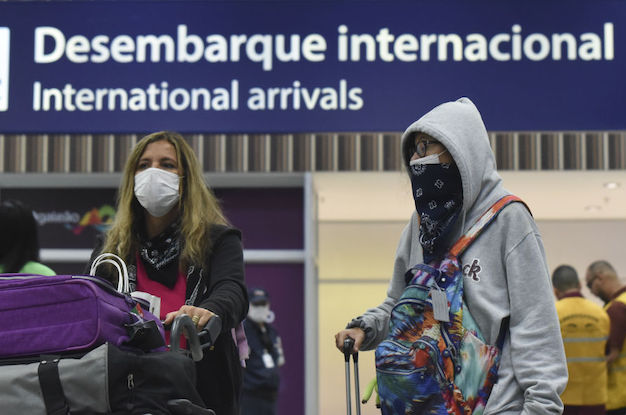It’s been yet another rough week for Brazil’s international image, with an Olympic mascot shot dead in an absurd accident and another national political figure dragged into scandal. But the biggest blow of all came from Declan Ryan, co-founder of the Irish budget airline Ryanair, who told an Argentine newspaper that he was considering expansion into every South American country “except for Brazil, where there is lots of corruption.”
This is precisely the wrong lesson to draw from Brazil’s struggles – akin to believing that the house that gets the most exhaustive inspection must also be the most rotten one on the block. It’s telling that Ryan made his comments (which became huge news in Brazil) while announcing an expansion into Argentina, where the corruption under 12 years of Kirchner rule is only now coming to light. Just last week, a former Argentine secretary of public works was arrested while trying to hide $9 million in cash in a monastery. Ryan preferred to laugh that story off.
As regular AQ readers know, the negative headlines about Brazil result from a positive process – the independent prosecutors who have uncovered evidence of systemic graft and fraud, and sent some of the country’s most powerful people to jail. This does not mean Brazil is South America’s most corrupt country – it may mean, instead, that it has its healthiest (or most active) legal system. But the mistake Ryan made is surprisingly common, and it provides a golden opportunity for investors who are savvy enough to see the truth.
The two Latin American countries that have seen the most dramatic corruption cases in the past year are Brazil and Guatemala, where a similarly extraordinary investigation yielded proof of a criminal ring in the customs agency, culminating in the resignation and imprisonment of a sitting president. In both countries, the legal communities are justifiably proud of their accomplishments – as are members of the middle class who overwhelmingly backed them with street demonstrations and other signs of support. But in the most recent annual corruption rankings published by Transparency International, Brazil and Guatemala actually saw their relative positions worsen – from 69th to 76th, and 115th to 123th, respectively.
The Transparency data ranks perceptions of corruption, rather than corruption itself. But perception is key, of course, and there are emerging signs that countries where judicial systems are making huge advances may be losing, rather than gaining, foreign investment. Perhaps we could call this the Declan Ryan Paradox. I was in Guatemala two weeks ago, and heard from domestic business leaders that some foreign companies have been putting projects on ice as the Attorney General’s office and its partners continue their sweeps of key government and private-sector institutions.
This makes no sense, at least not in the long run. If you ask foreign investors whether they’d rather bet on A) a country with weak judicial institutions and deeply entrenched corruption, or B) a country with strong judicial institutions and a comparatively clean business culture, they’ll always answer “B.” Which raises the question: Why not consider investing in precisely the places where anti-corruption probes are the noisiest? These are often the countries in the midst of a quantum leap in terms of governance, and assets are almost always cheap because so many have been scared away, preferring instead to pursue that old investors’ canard – “stability.”
There are plenty of people out there who get this. I was also in Mexico last month, and lost count of the number of business leaders and ordinary citizens who told me “Mexico needs a Lava Jato,” as Brazil’s probe into corruption at Petrobras is known. (Instead, Mexico’s Congress passed a badly watered-down version of new anti-corruption legislation last week.) I’m currently in São Paulo, where I had the honor of speaking Tuesday night to a large delegation of potential investors and officials from Colorado, including Governor John Hickenlooper and the mayor of Denver, Michael Hancock. They have the vision to spend a week in Brazil at a time when few others dare – and they may well reap the benefits.
Brazil’s future success is far from a slam-dunk. The economy is in desperate need of structural reforms, the current interim government’s survival is not guaranteed, and it’s still unclear where a new generation of clean, ethical Brazilian leaders will come from. Meanwhile, six weeks from now, the Olympics will bring 35,000 foreign journalists to Rio at precisely the city’s darkest moment in two decades. This will ensure an onslaught of further insults – some true, others completely spurious – to Brazil’s reputation. Somebody, though, will be smart enough to see beyond the noise. Who knows? One day, it might even be Declan Ryan.
—
Winter is editor-in-chief of Americas Quarterly









